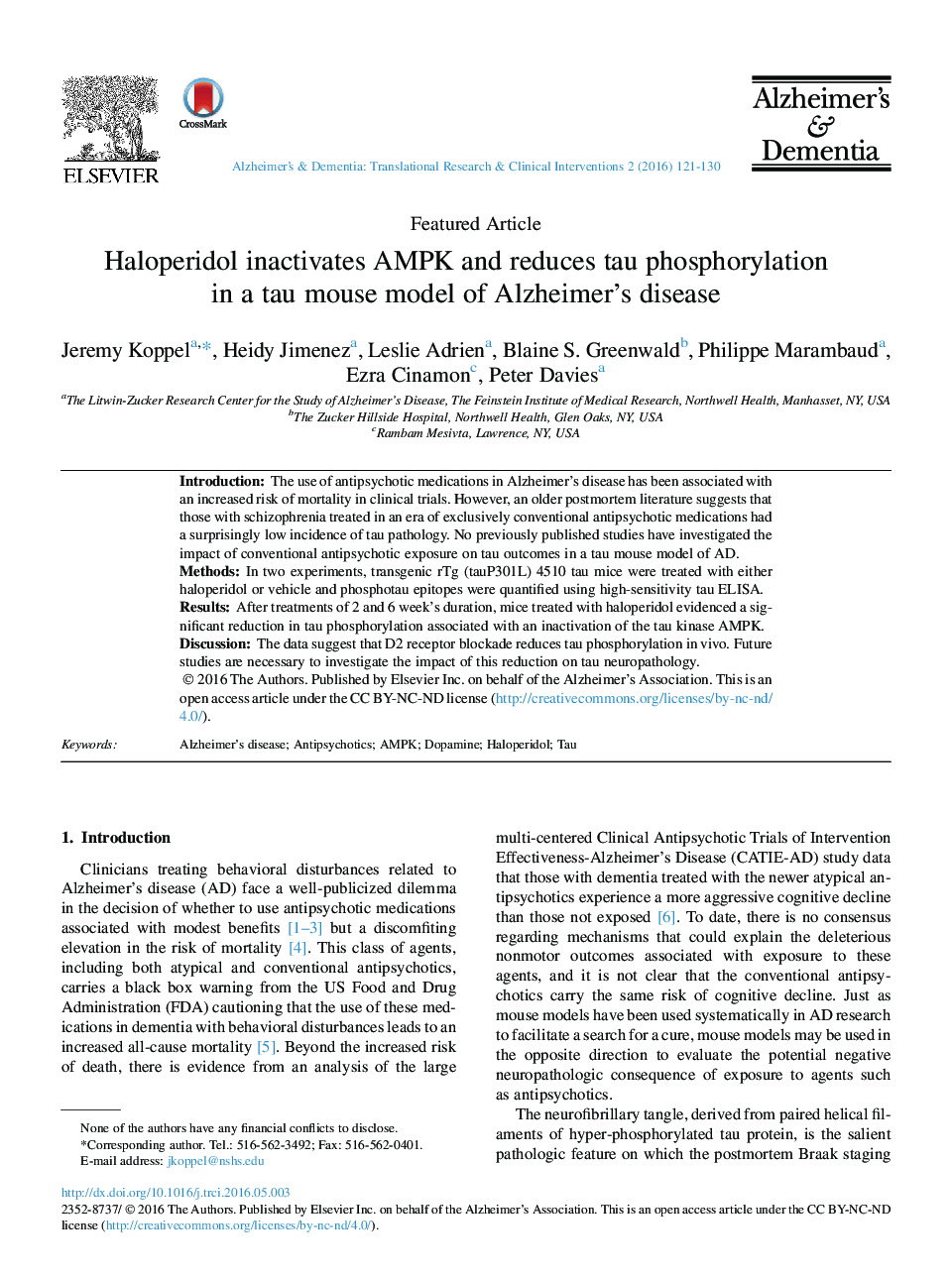| Article ID | Journal | Published Year | Pages | File Type |
|---|---|---|---|---|
| 3032097 | Alzheimer's & Dementia: Translational Research & Clinical Interventions | 2016 | 10 Pages |
IntroductionThe use of antipsychotic medications in Alzheimer's disease has been associated with an increased risk of mortality in clinical trials. However, an older postmortem literature suggests that those with schizophrenia treated in an era of exclusively conventional antipsychotic medications had a surprisingly low incidence of tau pathology. No previously published studies have investigated the impact of conventional antipsychotic exposure on tau outcomes in a tau mouse model of AD.MethodsIn two experiments, transgenic rTg (tauP301L) 4510 tau mice were treated with either haloperidol or vehicle and phosphotau epitopes were quantified using high-sensitivity tau ELISA.ResultsAfter treatments of 2 and 6 week's duration, mice treated with haloperidol evidenced a significant reduction in tau phosphorylation associated with an inactivation of the tau kinase AMPK.DiscussionThe data suggest that D2 receptor blockade reduces tau phosphorylation in vivo. Future studies are necessary to investigate the impact of this reduction on tau neuropathology.
